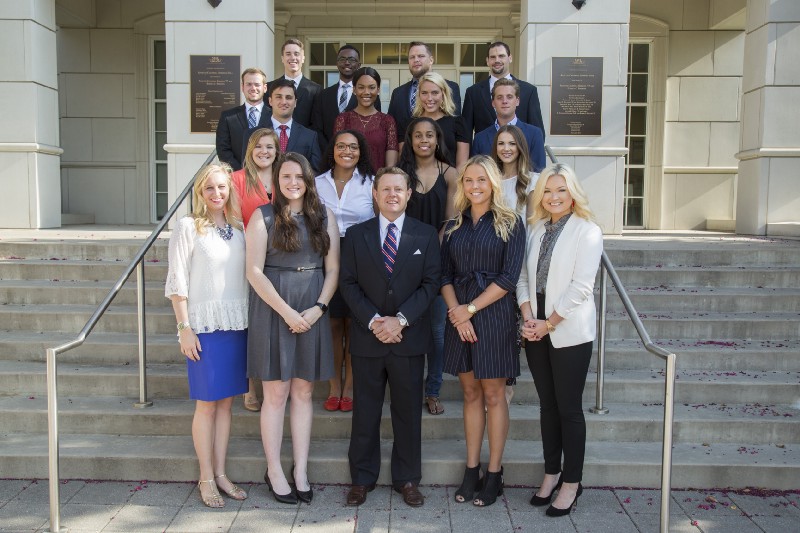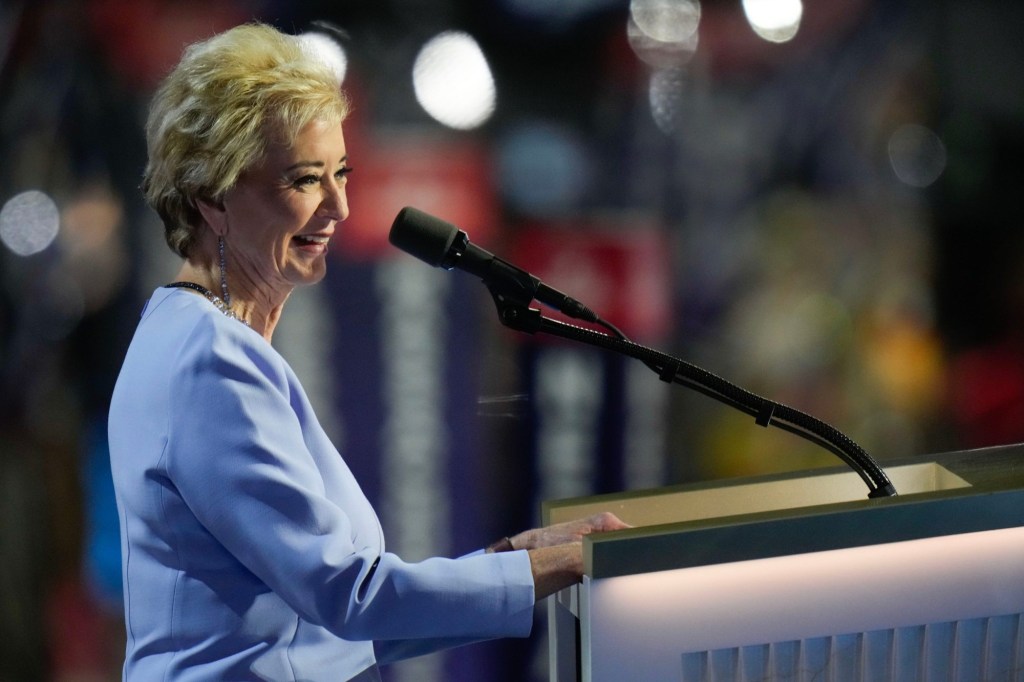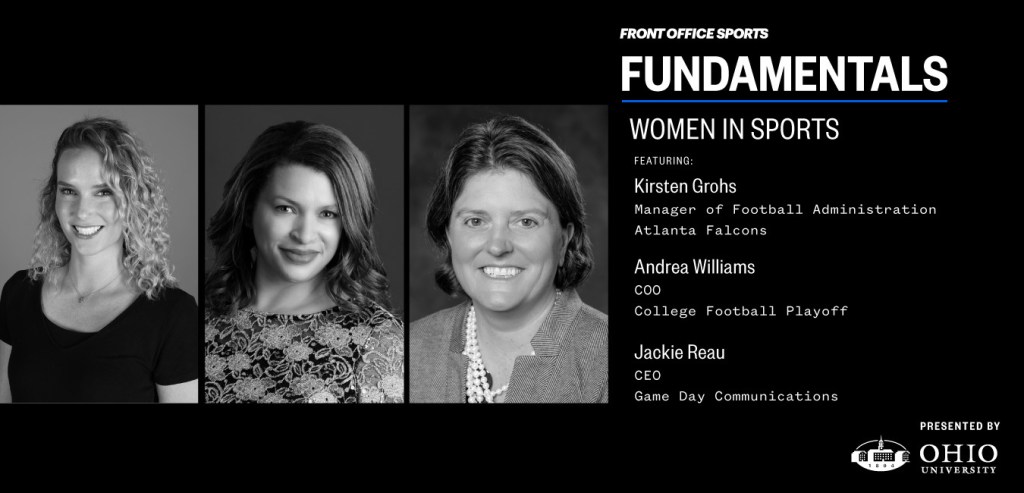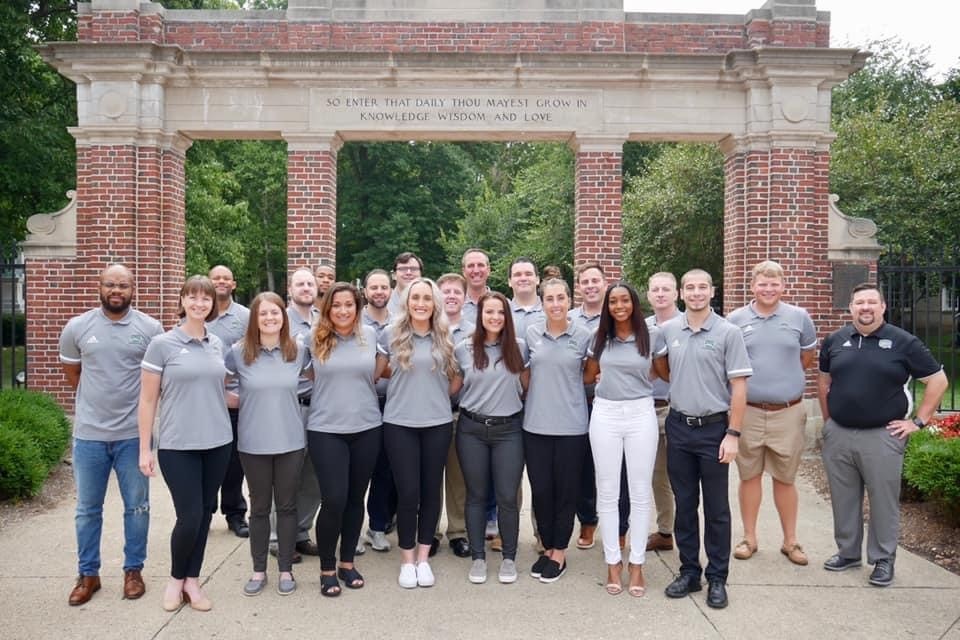At a time with over 200 programs in the country, SMU believes they stand out.
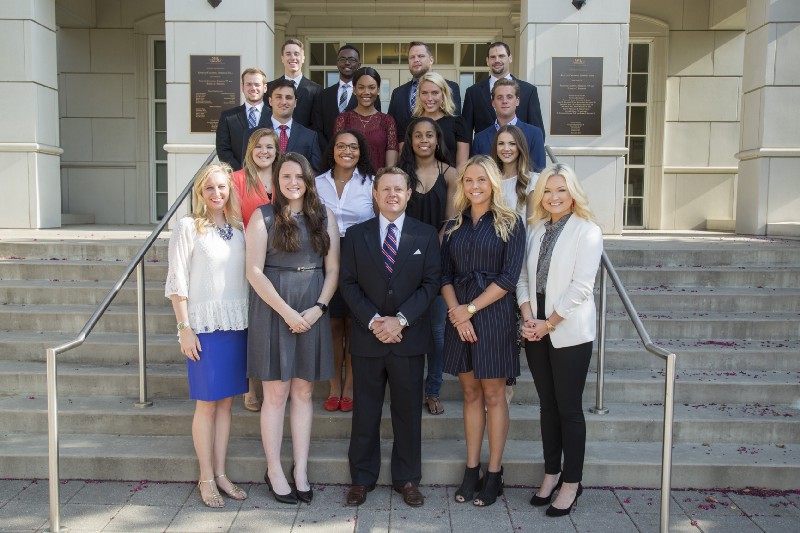
At college, if you were to ask Peter Carton where he would be today, his answer might not resemble his current position.
Carton, Director of the Sport Management program at SMU, has seen his journey take him across the globe and through multiple industries, but his love of sports and teaching has remained unchanged.
“I made a commitment my junior year of college that I was going to work in the sports industry,” Carton said as he reminisced of his undergrad years at Catholic University in Washington D.C. “I just didn’t know where.”
As the number one varsity tennis player on his team all four years and nationally ranked, it was during his time at Catholic University where he got his first taste of the sports business landscape.
“After I graduated from high school, I connected with a tennis alumnus of Catholic University who introduced me to a friend at a sports agency by the name of ProServ. I started working there my sophomore year of college as a volunteer and, at the time, thought I was going to be a player agent representing tennis players, given my tennis and family background in the legal field.”
During his tenure at ProServ, Carton was able to gain experiences spanning from athlete representation to event management. Carton started off as an intern, progressed to Sports Event Manager and was offered a full-time position following his graduation.
However, Carton turned down the offer in favor of law school at Seton Hall university, where he believed he could better round himself personally and professionally — a decision that turned out to be more than he bargained for.
“Midway through the program I realized my drive was not to be a practicing attorney but I realized I had an opportunity to continue to build my credentials in sports.”
While at Seton Hall University studying law, Carton student-directed their sports law symposium, was co-founder and Editor-in-Chief of the Seton Hall Journal of Sport Law and participated as the Administrative Assistant to the Chair of the Seton Hall University Faculty Athletic Council.
While law school may be the pinnacle of education for some, it was just another step for Carton.
“After graduating with my law degree, I had the opportunity to attend the University of Massachusetts at Amherst to pursue my master’s in sports management,” Carton said. “The real draw was twofold. Part one was to complete a degree for further grounding and be able to land a sports industry internship, and part two was being able to serve as a graduate research assistant to the head of the program, Glenn Wong, a renown sports law attorney and the department head.”
By leveraging his prior sports management experiences, together with the degree and the work he did at UMASS, Carton secured an internship with The Office of the Commissioner of Major League Baseball upon graduation.
“I thought about pursuing my Ph.D. in Sports Management as I considered a career teaching in higher education, but at the time I was passionate about the business of sports. And when the MLB opportunity presented itself, it was just too good to refuse,” Carton said.
“It was your classic ‘starting off’ story for someone in sports management. I had solid experience entering the field and had both a master’s and a law degree, but I still had to effectively start with an internship, though my job title was ‘Consultant’. The kicker? I had to move to Australia.”
Slated to be there for only one year, Carton and his wife ended up staying in Australia for almost six.
Over the course of his time down under, his role went from Consultant to the Australian Baseball League and Australian Baseball Federation, to handling MLB’s business interests in the region as Director — Australia, and then to Director — Southeast Asia, Australia & New Zealand. It was also during his time in Australia that he re-connected with academia as a graduate school lecturer in Sport Marketing at the University of Technology, Sydney.
It was during this experience that Carton determined that if a meaningful opportunity in sports management in higher education presented itself he would strongly consider it as he truly enjoyed teaching and imparting his real-world experiences.
In an effort to continue to advance his career, Carton ultimately decided it was time to move back to New York City, a transition that was tougher than expected.
“After returning to the states, I worked for MLB in the city in a variety of business operation and corporate marketing and event positions including Manager, Business Affairs, to Senior Manager, Event Marketing,” Carton said. “It can be a tough transition. I went from a very entrepreneurial setting where I was a senior advisor to the Australian Baseball League General Manager running a league and able to be my own boss to a very corporate environment back in NYC. I started to feel like I was where I didn’t want to be.”
So, it was back to the startup world for Carton where he and his partners co-founded and developed a new open-air retail market concept in San Antonio, Texas.
“This new opportunity led me down a career path involving venture capital funding, operations, and real estate development. Again, it was entrepreneurial in that you were out on your own and handling everything from venture funding to land acquisition to project development.”
As he entered into what he likes to call the “third phase” of his career, Carton was interested to get back into academia and impart his sports management experiences. So, he decided to reach out to SMU to inquire about an adjunct position in their Sport Management Master’s Program.
Three years later, and after gaining additional undergraduate teaching experience as an adjunct lecturer at Texas Woman’s University, that adjunct role at SMU has now turned into a full-time position overseeing the entire Sport Management department — a department that is poised for great things, according to Carton.
“SMU is a phenomenal institution. In a short span of eight years for our undergraduate program and four years for our master’s program, we have seen significant growth in application and enrollment numbers and successful alumni. Being in an amazing market like Dallas, we are actively and aggressively looking at improvements that will take our program to the next level.”
A strong believer in the power of academia, Carton thinks the SMU Sport Management program stacks up against some of the best in the country.
“I think we stand out because the program is extremely rigorous and former alumni are now in the position to come back and hire.” Carton said. “They understand the classes our students take and how applicable they are to the sports industry, as well as the continuous learning our students gain from guest speakers, experiential field trips, and the capstone internship. It’s an easy choice for alumni when it comes to finding the right candidate for an opening.”
“I think we have tremendous upside as a program. Because of our location in Dallas, the fifth largest sports market in the U.S., our students have valuable access to organizations, professionals, and events, as well as extensive connections through faculty and full-time staff. Combined with our engaged alumni base, it’s only a matter of time until SMU is one of the top sport management programs in the U.S.”
Disclaimer: SMU is a proud partner of Front Office Sports.
Front Office Sports is a leading multi-platform publication and industry resource that covers the intersection of business and sports.
Want to learn more, or have a story featured about you or your organization? Contact us today.
